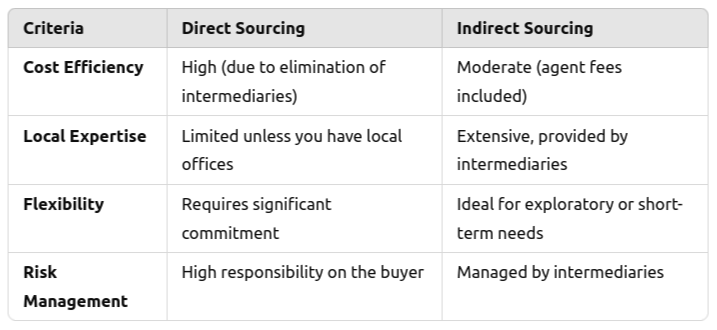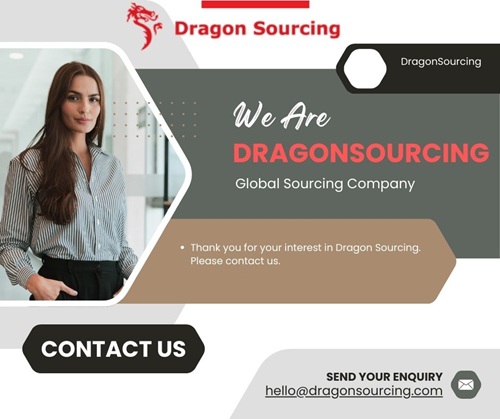When it comes to global sourcing, South Africa has emerged as a strategic hotspot. From its rich natural resources to its diverse manufacturing capabilities, the country offers unique opportunities for procurement professionals. Leveraging the right strategies can make all the difference in extracting value from sourcing efforts. In this article, we’ll dive into two distinct procurement strategies and how they unlock different advantages when sourcing from South Africa.
Why Choose South Africa for Procurement?
South Africa is a dynamic player in the global sourcing landscape, offering benefits such as:
- Rich Resources: Known for its mining sector, South Africa is a leading supplier of precious metals, minerals, and raw materials.
- Manufacturing Expertise: The country has robust industries in automotive, textiles, and agribusiness.
- Infrastructure and Trade Agreements: Advanced ports, free trade agreements with African and global partners, and improved logistics systems make it a reliable sourcing destination.
Strategy 1: Direct Sourcing – Establishing Local Connections
Direct sourcing involves working directly with South African suppliers, enabling businesses to establish deeper relationships and achieve better cost efficiency. Here’s why this strategy can be advantageous:
Benefits of Direct Sourcing
- Cost Control: By bypassing intermediaries, you gain direct access to competitive pricing structures.
- Transparency: Direct negotiations with suppliers ensure clear terms and better quality control.
- Custom Solutions: South African suppliers often excel in providing tailored solutions for unique business needs.
When to Use Direct Sourcing
Direct sourcing works best when you:
- Have a long-term procurement plan.
- Need high volumes of consistent-quality goods.
- Want to foster strong partnerships for better lead times and reliability.
Strategy 2: Indirect Sourcing – Leveraging Local Expertise
Indirect sourcing involves working with intermediaries, agents, or local procurement companies. This approach is valuable for businesses that lack local market knowledge.
Benefits of Indirect Sourcing
- Risk Mitigation: Local agents navigate challenges such as compliance, currency fluctuations, and supplier reliability.
- Time Efficiency: Agents or procurement firms handle the sourcing process, saving you significant time and resources.
- Market Insights: Benefit from their knowledge of South Africa’s cultural, regulatory, and market nuances.
When to Use Indirect Sourcing
Indirect sourcing is ideal when:
- You’re entering the South African market for the first time.
- You need to procure small quantities or highly specialized products.
- Market conditions are volatile or complex.
Comparing the Two Strategies: Which Fits Your Needs?

Choosing the right strategy depends on your business’s goals, budget, and familiarity with the South African market.
Maximizing the Benefits of Procurement from South Africa
To fully capitalize on South African sourcing opportunities:
- Understand Local Regulations: South Africa has specific import/export laws. Ensure compliance to avoid delays or penalties.
- Prioritize Sustainability: South African businesses are increasingly focusing on ethical and sustainable practices, which can add value to your brand.
- Leverage Technology: Use procurement platforms to monitor supplier performance, track shipments, and streamline processes.
Key Industries to Consider in South Africa
- Mining and Minerals: South Africa leads in the export of gold, platinum, and diamonds.
- Automotive Components: Globally competitive manufacturing sector for auto parts.
- Textiles and Apparel: High-quality fabrics and fashion goods.
- Agriculture: Fresh produce, wine, and essential oils are prominent exports.
At Dragon Sourcing, we specialize in delivering comprehensive global sourcing services in South Africa, connecting businesses with reliable suppliers across diverse industries. Leveraging our deep understanding of the South African market, we help clients navigate the complexities of procurement, ensuring cost-effective and efficient sourcing solutions. Our services encompass supplier identification, quality assurance, and logistics management, all tailored to meet your specific needs. By partnering with us, you gain access to a vast network of vetted suppliers, enabling you to optimize your supply chain and achieve sustainable growth.
South Africa’s procurement approach offers vast opportunities grounded in the nation’s rich natural assets and strong manufacturing sectors. Whether through direct sourcing—for better cost control, quality, and custom solutions—or indirect sourcing—to enhance local expertise, reduce risk, and save time—you can build a resilient, ethical, and efficient supply chain.
Conclusion: Crafting a Winning Procurement Strategy:
South Africa procurement is about understanding the market and choosing a strategy that aligns with your business goals. Whether you opt for direct sourcing to build lasting relationships or indirect sourcing for risk-free market entry, South Africa offers vast opportunities to enhance your supply chain. Combine strategic insights with robust planning, and you’ll unlock the full potential of this thriving sourcing destination.
Ready to source from South Africa? Take the first step toward building a resilient, cost-effective supply chain today.
South Africa procurement offers a vast opportunity for business houses seeking reliable, resource‐rich sourcing methods. South Africa has natural resources and is a key supplier of precious metals, minerals, and a host of raw materials, also helping strong manufacturing sectors such as automotive components, textiles, and agribusiness. There are two main primary sourcing strategies that are effective: direct sourcing and indirect sourcing. Business houses can get opportunities from direct sourcing. They can engage directly with South African suppliers, allowing for better cost control by eliminating intermediaries, fresh quality oversight, and customized solutions tailored to specific business needs. And indirect sourcing also leverages local experts, agents, or procurement firms, who help navigate local regulations, supplier reliability, and cultural and market nuances. All these facilities reduce risk, especially for newcomers, and boost up procurement processes. If the companies get real benefits, they should understand import/export laws, prioritize sustainability and ethical practices, and work with the latest technology to monitor supplier performance and logistics. By selecting the strategy that aligns with their volume needs, time frames, and in-market experience, business houses can build resilient, cost-efficient supply chains through South African procurement.



